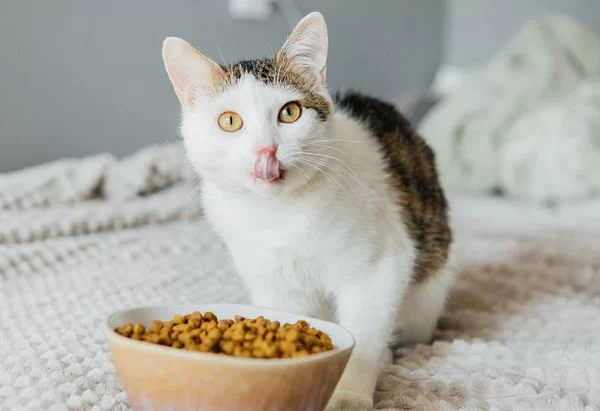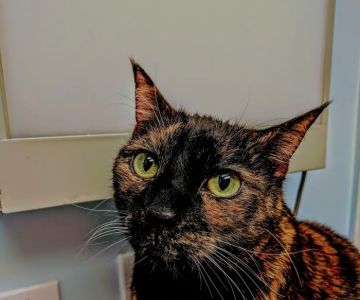Understanding Sensitive Stomachs in Cats
As a cat owner, one of the most concerning issues I’ve faced is my cat’s sensitive stomach. Cats are known for their finicky nature, but when it comes to food, a sensitive stomach can lead to various health issues like vomiting, diarrhea, and constipation. I found out the hard way that not all cat foods are created equal, and choosing the right one can make all the difference in helping your cat feel better.
What Causes Sensitive Stomachs in Cats?
Sensitive stomachs in cats can be caused by a variety of factors. Some cats may have food intolerances or allergies to specific ingredients, while others may suffer from underlying medical conditions such as inflammatory bowel disease (IBD), pancreatitis, or gastrointestinal issues. It’s essential to observe your cat’s behavior closely to pinpoint the root cause of their digestive problems. For my cat, Whiskers, I discovered that certain proteins triggered his symptoms, while others were much gentler on his digestive system.
Common signs of a sensitive stomach in cats include:
- Frequent vomiting or hairballs
- Diarrhea or soft stools
- Lack of appetite or sudden weight loss
- Excessive licking or biting of paws or belly
Choosing the Best Food for Cats with Sensitive Stomachs
When it comes to selecting the right food for a cat with a sensitive stomach, it’s important to consider several factors. Not all cats will respond to the same food, so it may take some trial and error to find what works best for your feline companion. Here are some key things to look for when choosing food for your cat with digestive issues:
1. High-Quality Protein Sources
One of the first things I learned was that protein quality matters. Some cats have difficulty digesting certain types of proteins, especially those found in lower-quality foods. For example, Whiskers struggled with chicken-based foods but did well with turkey or fish. When choosing a food, look for high-quality, easily digestible protein sources like turkey, salmon, or lamb. Avoid food that lists fillers such as by-products, corn, or soy as primary ingredients.
2. Limited Ingredient Diets
For cats with sensitivities or allergies, a limited ingredient diet can help reduce the likelihood of digestive upset. These diets focus on a small number of ingredients, which makes it easier to identify any food sensitivities your cat may have. When I switched Whiskers to a limited ingredient diet, I noticed a significant reduction in his stomach issues. Foods with only one animal protein source and minimal additives are often ideal for cats with sensitive stomachs.
3. Easily Digestible Carbohydrates
Carbohydrates are another important factor when choosing food for a cat with a sensitive stomach. Cats are obligate carnivores, meaning they don’t need a lot of carbohydrates in their diet, but some carbs can be beneficial for digestion. Opt for easily digestible carbohydrates like sweet potatoes or peas instead of grains like corn or wheat. These carbs are gentle on the stomach and can provide your cat with the fiber needed for healthy digestion.
4. Probiotics for Digestive Health
Probiotics are beneficial bacteria that promote a healthy gut. I didn’t realize just how important they were until I noticed how much better Whiskers’ stomach issues improved after adding foods with probiotics. These beneficial microorganisms help maintain a balanced digestive system, reduce inflammation, and improve nutrient absorption. Look for cat foods that list probiotics, such as lactobacillus, on the ingredients label.
5. Grain-Free Options
Some cats are sensitive to grains, which can lead to digestive upset. For these cats, a grain-free diet can be beneficial. Grain-free foods replace traditional grains like rice, corn, and wheat with more easily digestible ingredients like potatoes or peas. If your cat is showing signs of a food sensitivity, a grain-free option might be a good choice to explore.
Best Food Options for Cats with Sensitive Stomachs
After trying several options, I’ve narrowed down a list of some of the best foods for cats with sensitive stomachs. Keep in mind that every cat is different, so what works for one might not work for another. It’s always a good idea to consult with your veterinarian before making any major changes to your cat’s diet. Here are some top choices that I found effective:
1. Hill's Science Diet Adult Sensitive Stomach & Skin Chicken Recipe
Hill’s Science Diet is known for its high-quality ingredients and scientifically backed formulas. This chicken recipe is specifically designed for cats with sensitive stomachs. It contains prebiotic fiber, which helps promote digestive health, and is gentle on the stomach. Whiskers loved this food, and it made a noticeable difference in his digestion.
2. Royal Canin Veterinary Diet Gastrointestinal Fiber Response Canned Cat Food
Royal Canin offers a prescription diet specifically for cats with gastrointestinal issues. The Fiber Response formula is ideal for managing digestive problems like diarrhea or constipation. It’s rich in fiber and contains a unique blend of nutrients that support healthy digestion. This food has helped many cats with more severe digestive issues.
3. Natural Balance L.I.D. Limited Ingredient Diets Green Pea & Duck Formula
Natural Balance’s limited ingredient diet is a great option for cats with food sensitivities. The green pea and duck formula is highly digestible and free from grains, making it a good choice for cats with sensitive stomachs or allergies. I found this food to be gentle on Whiskers’ stomach, and it helped him feel better without any digestive upset.
4. Blue Buffalo Basics Limited Ingredient Diet Turkey & Potato Recipe
Blue Buffalo’s Basics line is formulated with simple, wholesome ingredients to reduce the risk of food sensitivities. The turkey and potato recipe is highly digestible and includes pumpkin and peas to support healthy digestion. This food worked wonders for Whiskers, providing him with the nutrition he needed while keeping his stomach calm.
5. Wellness CORE Digestive Health Turkey & Chicken Recipe
Wellness CORE’s Digestive Health formula is designed to support digestive health with probiotics, prebiotics, and fiber. It’s grain-free and made with high-quality turkey and chicken for protein. This food is rich in nutrients that promote a healthy gut and balanced digestion, and Whiskers thrived on it.
My Experience with Finding the Right Food
Finding the right food for Whiskers was a journey. I spent months experimenting with different brands and types of food, trying to pinpoint exactly what worked best for his sensitive stomach. It wasn’t until I switched to a high-quality, limited ingredient diet that I started to see real improvement. Whiskers now eats a food that he loves and that supports his digestive health. It took time, but I’m so grateful for the relief it brought him.
If you’re struggling with a cat who has a sensitive stomach, don’t lose hope. With the right food and some patience, you can help your cat feel better. It may take a bit of trial and error, but your cat’s digestive health is worth the effort.












